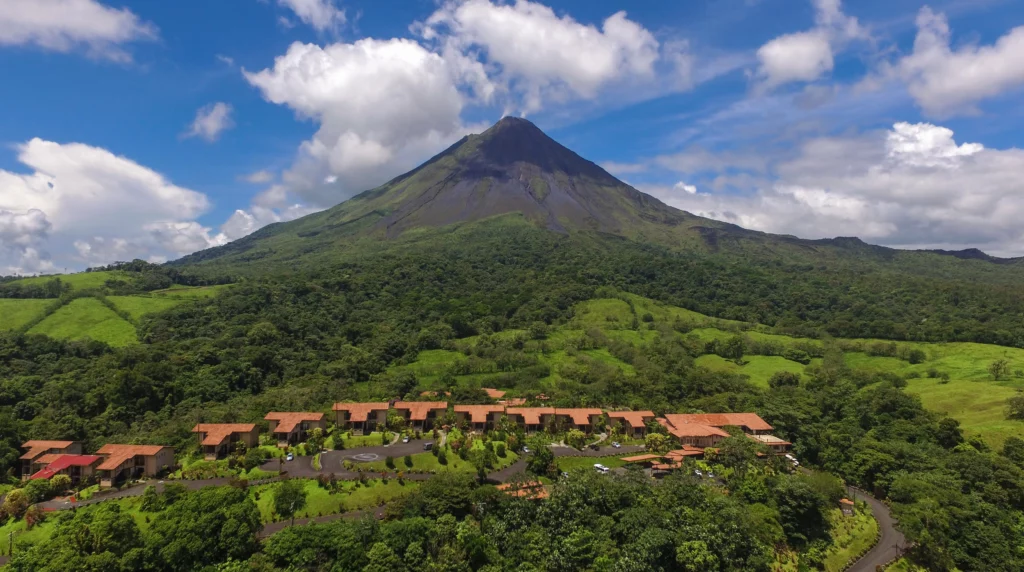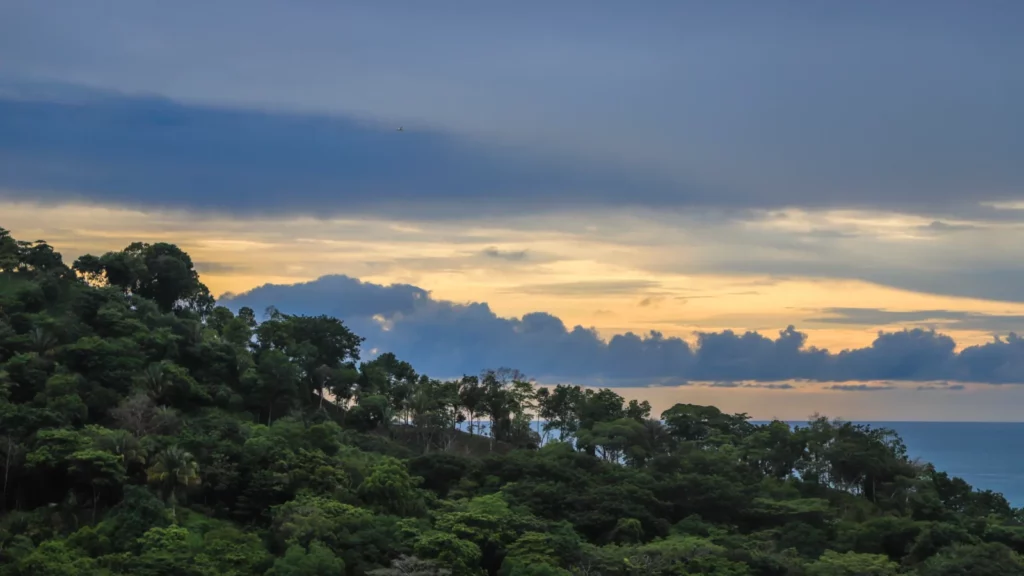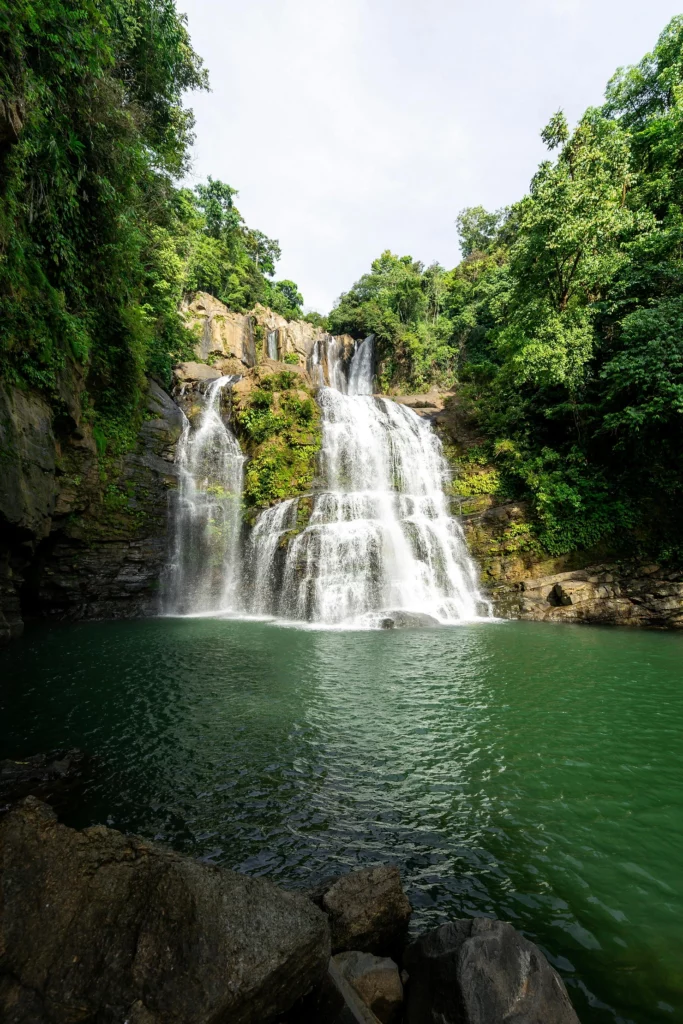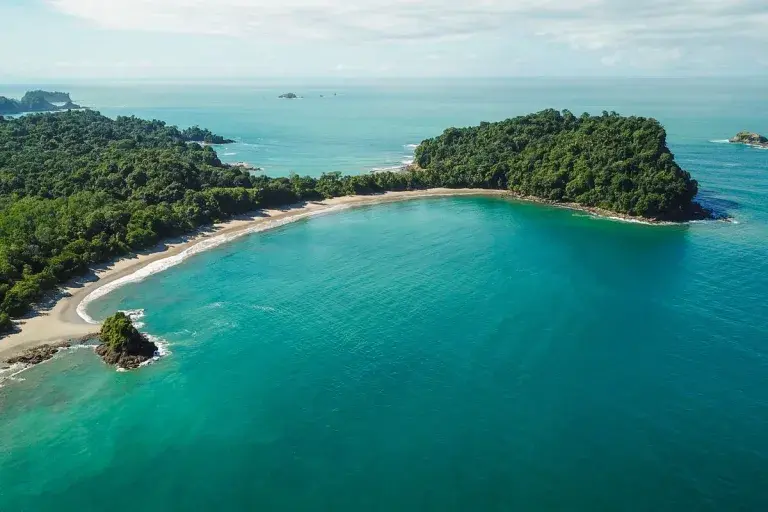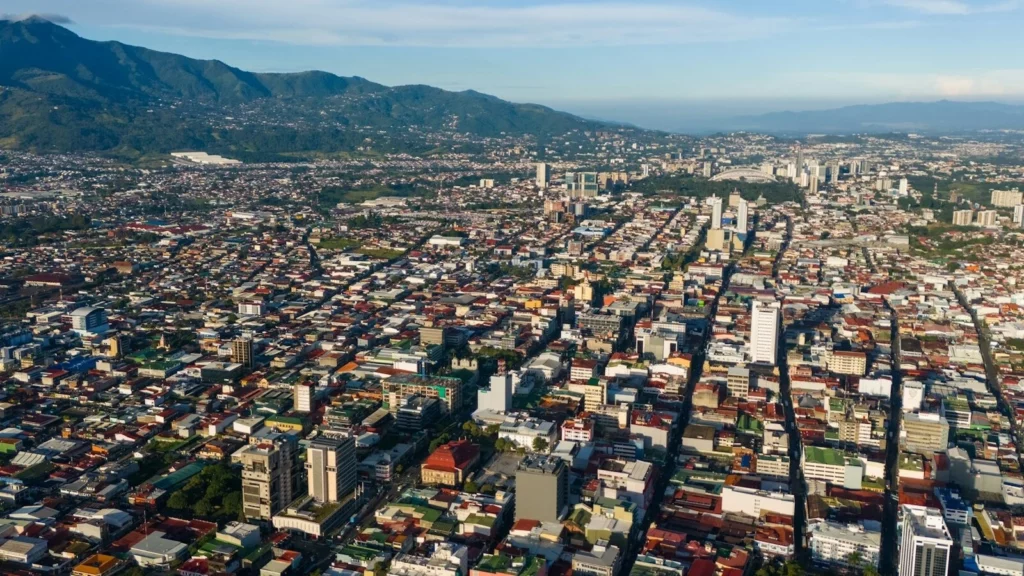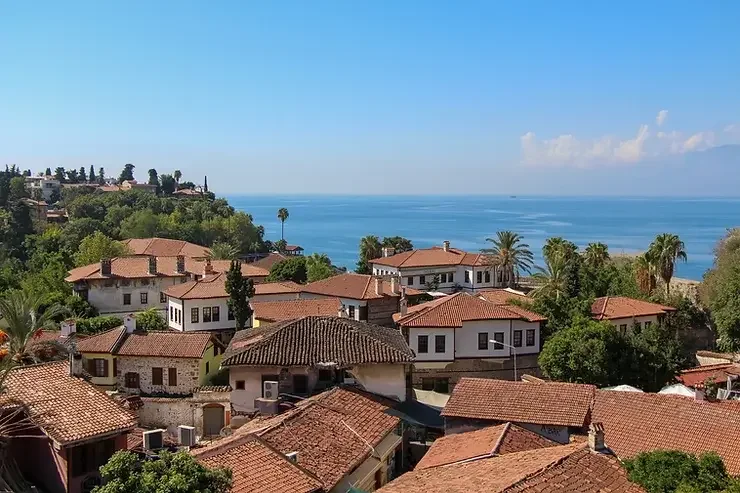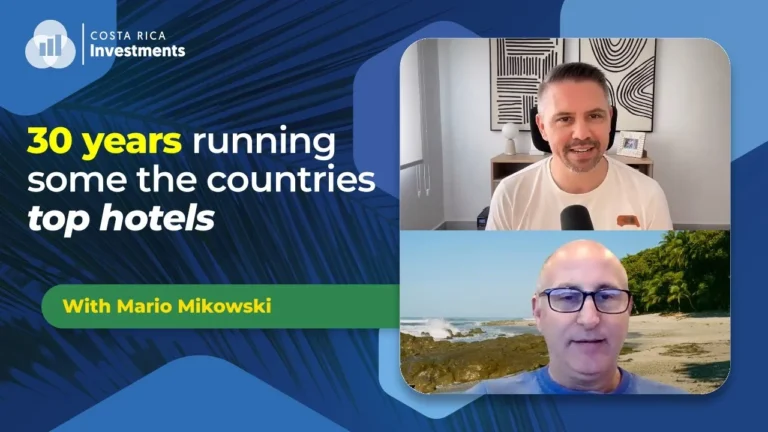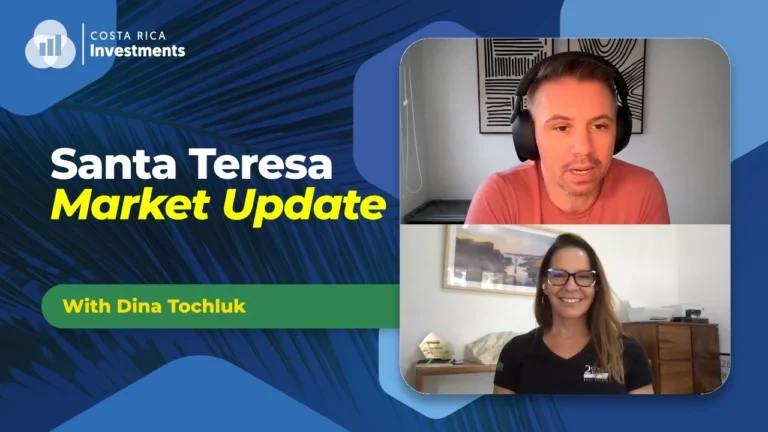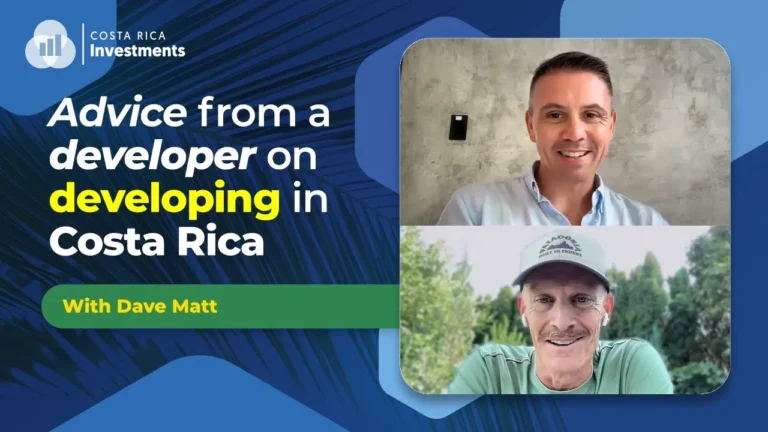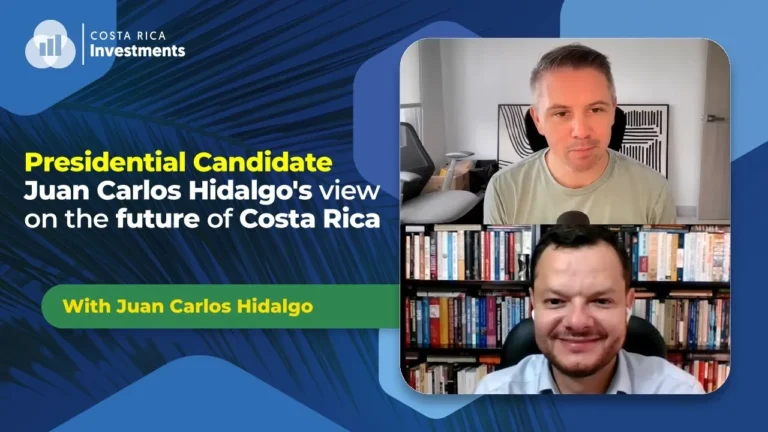The line at Banco Nacional stretched out the door and down the sidewalk. Three hours later, I finally reached the teller, only to discover I was missing a crucial document needed to open my bank account in Costa Rica. I’d have to come back tomorrow and start over.
That was my experience in 2018. Fortunately, opening a bank account in Costa Rica has become significantly more streamlined in 2025, with clearer requirements and improved digital options. With over 35% more expatriates moving to Costa Rica since 2021 according to the Costa Rican Department of Immigration, banks have adapted their processes to accommodate international clients.
This comprehensive guide walks you through the exact steps to open a bank account in Costa Rica today, whether you’re a tourist, resident, digital nomad, or business owner. I’ll share insider tips from both banking professionals and longtime expats to help you avoid common pitfalls and choose the right banking option for your specific situation.
Costa Rican Banking System in 2025
Costa Rica’s banking system consists of both state-owned public banks and private institutions. Before diving into the account opening process, understanding this structure helps you make more informed decisions.
Public vs. Private Banks: Key Differences That Affect Your Choice
| Feature | Public Banks | Private Banks |
|---|---|---|
| Government Guarantee | 100% deposits guaranteed by government | Varies by bank and account type |
| Documentation Required | More extensive | Generally less paperwork |
| Wait Time | Typically longer | Usually faster service |
| Foreign Language Support | Limited English services | Better English support |
| International Services | Basic offerings | More sophisticated options |
| Mobile Banking | Improving but often basic | Generally more advanced |
Public banks in Costa Rica include Banco Nacional, Banco de Costa Rica (BCR), and Banco Popular. These institutions offer more security through government backing but often involve more bureaucracy.
Private banks include BAC Credomatic, Scotiabank, Davivienda, and Promerica. These typically provide better service for international clients but may have higher minimum balance requirements.
Common Banking Terms You’ll Encounter in Costa Rica
When navigating the Costa Rican banking system, these essential Spanish terms will help you communicate effectively:
- Cuenta bancaria (kwen-ta ban-car-ia): Bank account
- Cuenta corriente (kwen-ta co-ree-en-tay): Checking account
- Cuenta de ahorros (kwen-ta day ah-or-ros): Savings account
- Estado de cuenta (es-ta-do day kwen-ta): Account statement
- Tarjeta de débito (tar-hey-ta day deb-ee-to): Debit card
- Transferencia (trans-fe-ren-sia): Transfer
- Tipo de cambio (tee-po day cam-bio): Exchange rate
Banking hours in Costa Rica typically run from 9:00 AM to 5:00 PM Monday through Friday, though some banks offer extended hours in certain branches. Plan accordingly, as transactions initiated near closing time may not be processed until the next business day.
Who Can Open a Bank Account in Costa Rica?
Costa Rica allows various categories of people to open bank accounts, but requirements differ significantly based on your status.
Requirements for Tourists and Non-Residents
Contrary to popular belief, tourists can open bank accounts in Costa Rica, though with more limitations than residents. As a non-resident, you’ll face:
- Restricted account types (usually savings accounts only)
- Higher minimum balance requirements
- Possible geographic limitations to certain branches
- Longer processing times (7-14 business days)
The most non-resident-friendly banks include BAC Credomatic and Scotiabank, which have established protocols for foreign clients. Some branches of Banco Nacional also accommodate tourists, particularly in expatriate-heavy areas like Tamarindo, Jacó, and San José.
Requirements for Residents and Citizens
Residents with DIMEX cards (legal residency identification) enjoy a much smoother process with:
- Access to all account types
- Lower minimum deposits
- Faster approval times (typically 1-3 business days)
- Eligibility for credit products
Permanent residents and citizens have the most options and face the fewest restrictions. Your DIMEX card serves as your primary identification, streamlining the process considerably.
Digital Nomad Visa Holders: Special Considerations
Costa Rica’s Digital Nomad Visa program, launched in 2021 and expanded in 2024, created a new category of bank customers. If you hold this visa:
- You qualify for special accounts at select banks
- Documentation requirements mirror those for residents
- You need to show proof of stable income from abroad
- Some banks offer English-language support specifically for digital nomads
BAC Credomatic and Scotiabank currently offer the most comprehensive services for digital nomads, with dedicated representatives familiar with visa holder needs.
KEY TAKEAWAY: Your residency status significantly impacts which banks and account types are accessible to you. Residents have more options, but non-residents can still open accounts with the right documentation.
Step 1: Choose the Right Bank for Your Needs
Selecting the appropriate bank is crucial for a smooth banking experience in Costa Rica.
Top 5 Banks in Costa Rica Compared
| Bank | Best For | English Support | Min. Deposit (USD) | Online Banking Quality | International Transfer Fees |
|---|---|---|---|---|---|
| BAC Credomatic | Expats & Digital Nomads | Excellent | $250-500 | Excellent | Moderate ($25-45) |
| Banco Nacional | Residents | Basic | $50-200 | Good | Higher ($35-55) |
| Scotiabank | Non-residents | Very Good | $200-500 | Excellent | Lower ($20-40) |
| Banco de Costa Rica | Long-term residents | Limited | $50-200 | Good | Higher ($35-55) |
| Davivienda | Business accounts | Good | $500-1,000 | Very Good | Moderate ($25-45) |
Best Banks for Different Situations
For Expats: BAC Credomatic offers the most comprehensive English-language services and a user-friendly mobile app that works well internationally. Their “Expat Package” includes a checking account, savings account, and debit card with simplified documentation requirements for foreigners.
For Tourists: Scotiabank’s “Visitor Account” can be opened with a passport, proof of income, and proof of address from your home country. The process typically takes 3-5 business days.
For Business Owners: Davivienda offers specialized business accounts with merchant services, business loans, and dedicated account managers who can assist with international transactions.
For Digital Nomads: BAC Credomatic’s “Digital Professional” account package is specifically designed for remote workers, offering favorable exchange rates and integrations with international payment platforms.
Step 2: Gather Required Documentation
Proper documentation is the most critical factor in successfully opening a Costa Rican bank account.
Essential Documents Every Applicant Needs
- Valid passport (with at least 6 months validity)
- Secondary ID (driver’s license or national ID from home country)
- Proof of income:
- Recent bank statements (last 3 months)
- Employment verification letter
- Tax returns
- Investment statements
- Proof of address in home country (utility bill, bank statement)
- Reference letter from your current bank (less than 30 days old)
All documents not in Spanish should be officially translated. Some documents may require apostille certification from your home country.
Additional Documentation Based on Your Status
For Tourists:
- Copy of entry stamp in passport
- Proof of travel itinerary or return ticket
- Hotel reservation or temporary address
For Residents:
- DIMEX card (residency card)
- Costa Rican proof of address
- Costa Rican phone number
For Digital Nomad Visa Holders:
- Digital Nomad Visa documentation
- Proof of health insurance
- Proof of stable foreign income (minimum $3,000/month)
For Business Accounts:
- Business registration documents
- Tax identification number
- Articles of incorporation (if applicable)
KEY TAKEAWAY: Bring original documents plus copies of everything. Banks may request additional documentation during your appointment, so prepare more than you think you’ll need.
Step 3: Secure Proof of Address in Costa Rica
A valid Costa Rican address is essential for opening most bank accounts.
Acceptable Proof of Address Documents
Banks accept the following documents as proof of address:
- Utility bill (water, electricity, internet) less than 30 days old
- Rental agreement with notary certification
- Property title deed if you own property
- Cell phone bill in your name
The document must clearly display your full name and physical address (not a P.O. box). For utility bills, the name on the bill must match your identification exactly.
What to Do If You Don’t Have a Permanent Address Yet
If you’re new to Costa Rica, proving your address can be challenging. Consider these alternatives:
- Use a guarantor – A Costa Rican citizen or permanent resident can vouch for your residence
- Update utilities – Transfer utilities to your name immediately upon renting
- Bank statement delivery – Some banks will accept proof that bank statements can be delivered to your address
- Notarized declaration – A notary public can create a declaration of your residence
Some banks like Scotiabank and BAC have programs for newcomers that offer more flexibility on address verification.
“One overlooked option is getting a prepaid phone plan in your name,” suggests Patricia Mora, a relocation specialist in San José. “These plans can be established quickly and the bill serves as proof of address at many banks.”
Step 4: Schedule and Prepare for Your Bank Appointment
Walk-ins are strongly discouraged. Scheduling an appointment will save you significant time.
Making the Appointment: Online vs. In-Person
Most major Costa Rican banks now offer online appointment scheduling:
- BAC Credomatic: Schedule through their website or app under “Appointments”
- Banco Nacional: Use their “BN Citas” system on their website
- Scotiabank: Email the branch directly or call their central appointment line
- Banco de Costa Rica: Use their “BCR Citas” portal
When scheduling, specify you’re opening a new account and mention your residency status. This ensures you’re assigned to an appropriate representative.
What to Expect During Your Appointment
Prepare for an appointment lasting 1-2 hours. You’ll experience:
- Verification: Your documents will be reviewed for completeness and authenticity
- Interview: You’ll be asked about your purpose for opening the account, source of funds, expected transaction volume and connections to Costa Rica
- Biometrics: Many banks now collect fingerprints and a digital signature
Language Considerations: While many banks have English-speaking staff, particularly in touristy areas and private banks, don’t count on it. Consider bringing a Spanish-speaking friend or hiring a translator if your Spanish is limited.
Step 5: Complete the Account Opening Process
Once your appointment begins, you’ll need to complete several forms and processes.
Forms You’ll Need to Fill Out
- Account application: Basic personal information and contact details
- FATCA declaration: Required for U.S. citizens to report foreign accounts
- CRS form: Common Reporting Standard for automatic exchange of financial information
- Beneficiary designation: Who would receive your funds if something happened to you
Most forms are available in both Spanish and English, but the official signed versions will be in Spanish. Ask for translations of anything you don’t understand before signing.
Initial Deposit Requirements
Minimum initial deposits vary significantly:
- Savings accounts: $50-500 USD
- Checking accounts: $200-1,000 USD
- Business accounts: $500-2,500 USD
Deposits can typically be made in:
- Cash (USD or Costa Rican colones)
- International wire transfer (may delay account activation)
- Cashier’s check (from a Costa Rican bank)
Funds may be subject to a holding period of 3-15 business days, especially for international transfers or large deposits.
Step 6: Set Up Online and Mobile Banking
Digital banking access is essential for managing your Costa Rican account efficiently.
Digital Banking Setup Process
Most banks provide initial access during your account opening appointment:
- Temporary credentials: You’ll receive initial login information
- Activation code: Sent via SMS or email
- Security device: Some banks provide a physical token generator
- Biometric setup: Configure fingerprint or facial recognition
- Password creation: Set up permanent access credentials
International Transfer and Payment Features
For managing money between countries, you’ll need:
- IBAN/SWIFT codes: International identifiers for your Costa Rican account
- Correspondent bank information: For sending/receiving international wires
- Transfer limits: Daily and monthly maximums for various transaction types
- Currency exchange settings: Options for handling multi-currency transactions
Popular payment apps that work well with Costa Rican bank accounts include: Apple Pay (recently expanded to Costa Rica in 2024), SINPE Móvil (Costa Rica’s domestic instant transfer system), PayPal (limited functionality) and Wise (formerly TransferWise).
Key Takeaway: Set up SINPE Móvil immediately. This local payment system lets you send money instantly to any Costa Rican using just their phone number and is widely used for everything from splitting restaurant bills to paying contractors.
Step 7: Ongoing Banking Requirements
Maintaining your account in good standing requires understanding ongoing obligations.
Account Maintenance Requirements and Fees
Most Costa Rican bank accounts have:
- Monthly maintenance fees: $2-15 USD
- Minimum balance requirements: $100-1,000 USD
- Transaction limits: Withdrawal and transfer maximums
- Inactivity policies: Accounts dormant for 6-12 months may incur additional fees
These fees can often be waived by maintaining higher balances. setting up direct deposits, using your debit card for a minimum number of transactions, and bundling multiple products with the same bank.
Tax Reporting Obligations for Foreign Account Holders
U.S. citizens must report Costa Rican accounts on:
- FBAR (FinCEN Form 114): Required for accounts totaling over $10,000
- FATCA (Form 8938): Thresholds vary based on filing status and residence
Costa Rica participates in automatic information exchange programs, sharing your account data with your home country’s tax authorities. Non-compliance can result in significant penalties.
“Many expatriates don’t realize their Costa Rican accounts must be reported to their home countries,” explains Jennifer Thomas, an expat tax specialist. “This is especially important for Americans, who face strict reporting requirements regardless of where they live.”
Common Challenges and How to Overcome Them
Even with perfect preparation, you may encounter obstacles when opening your account.
Language Barriers
English support varies dramatically between banks and even between branches of the same bank. To overcome language challenges:
- Research English-friendly branches: Tourist areas and financial districts typically have better language support
- Bring a translator: Consider hiring a professional or bringing a bilingual friend
- Use translation apps: Google Translate’s camera feature can help with forms
- Request written instructions: Ask for email confirmations of next steps
BAC Credomatic and Scotiabank generally offer the best English language support, with dedicated English-speaking staff in many branches.
Delays and Bureaucratic Hurdles
Banking in Costa Rica often moves slower than in North America or Europe. Common delays include: document verification (additional verification of foreign documents), system limitation including technical issues with international information, approval processes as multiple levels of review for non-resident accounts are needed, and compliance checks (extra scrutiny for certain nationalities or professions).
If you encounter significant delays request to speak with a branch manager, ask for specific timelines and next steps, follow up via email to create a paper trail and consider hiring a local facilitator if problems persist.
Expert Tips from Expats and Banking Professionals
Advice from those who’ve successfully navigated the system can save you time and frustration.
Insider Advice from Long-term Residents
- Banking in smaller towns often provides more personalized service
- Developing a relationship with a specific banker can expedite future transactions
- Private banks generally offer better service but higher fees
- Keeping detailed records of all banking communications
Financial Advisors’ Recommendations
Consider opening accounts at multiple banks. Costa Rican banks occasionally have system outages or maintenance periods, and having alternatives ensures continuous access to your funds.
Financial professionals also recommend:
- Maintaining accounts in your home country alongside Costa Rican accounts
- Using specialized money transfer services instead of bank wires for better rates
- Setting up automatic bill payments through your Costa Rican account
- Considering investment options through your bank once established

